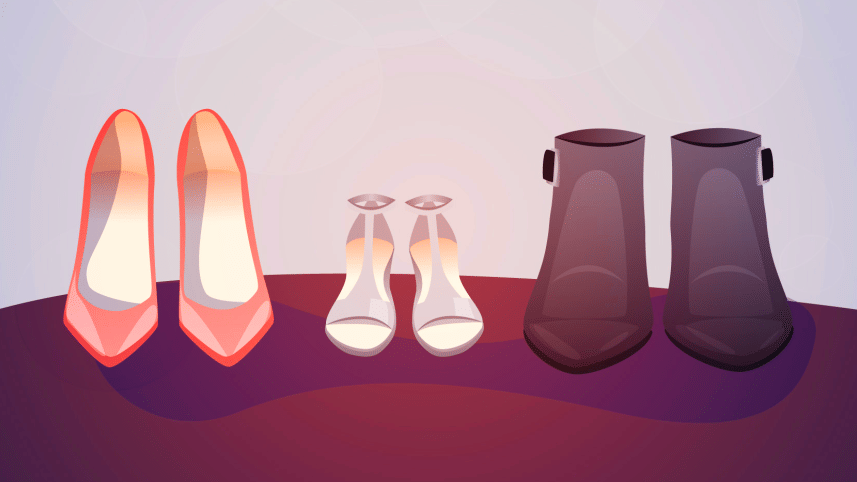The real deal with high heels

Although the Carrie Bradshaw's and Kate Beckett's of television reality would have us believe that your average fashion-conscious working woman wears nothing under a six-inch heel, most of us probably know better. And if you don't, it's about time you wake up from your misled Tinseltown stiletto fantasies. Unless you're willing to dish out a couple thousand grand for bunion correction surgery a few years down the line, swap those medieval torture devices for something a little easier on your hooves.
I'd always wondered how my mum got a bump on the inner sides of each of her feet. She didn't know it herself, but it was actually years and years of wearing high heels that mutated them so. From the start of university, she's been wearing them heels well into her work life. At the rate I'm going, I ought to be worried myself, and I don't even have a full-blown career yet, or at least the type that requires you to wear dress heels five days a week. And that brings us to the question of whether high heels are a formal must-wear, or simply an occupational hazard.
Now real lawyers and businesswomen don't cavort in multiple inches of pure hard plastic. And even if you've got a desk job, you're probably on your feet enough to pull a muscle going around in one of those babies. Eye sore or sore feet? Your choice. Most of the time we chose to ignore the blisters and the persistent aching feeling in our calves. We blame ourselves, never the heels. The truth is most women can't maneuver the stiletto like their television counterparts, women who've had personal trainers teach them how to walk around in those nine-inch nails. Yes, your shoes are just as important as the rest of your outfit, and comfort or opposing gender norms might not always be your top priorities, even if they should be. Granny's ultra-cushy diabetic shoes are simply not an option, now are they?
Dramatics aside, sloppy is the last thing you want, but your feet need some lovin' too. Karishma Ameen, a Fast Track Graduate at Standard Chartered Bank, says "I think wearing heels always gives you a formal and presentable feel. But you may have to move around the floor a lot all day it's best to wear around 2-3 inch heels preferably wedges since they are the easiest to walk in." But even a three-inch heel can shorten the Achilles tendon, which hurts like anything. If you've got back troubles and can't wear two-inch heels, wedge shoes with about a half-inch platform and an additional inch of heel, will give the impression that you're wearing heels. You can wear these when you know you'll be on your feet all day without hurting your back or feet.
Maliha Rahman, a former Executive Trainee at Mir Real Estate, believes wearing different kinds of shoes could be the answer. "I don't really have a thing for heels. Moreover, my shoe size is 41 so the Bangladeshi shoe stores don't offer much variety for me. So usually I wear peep-toes, gladiators, ballerina flats with and without ankle straps, flip-flops, sandals and some sort of wedges to the workplace. Gladiators are the best bet for me because they look not-so-informal and are comfortable. "And she's right. Variety might just be the way to go. Alternating between lower and higher heels, coupled with regular exercise, help stave off excess pressure on the knee, ankle injury, and other gnarly medical problems like hammertoes and pain in the ball of the foot.
Heels might actually help women in the workplace because they are one way of leveling the playing field with men, who are generally taller than women. Studies have shown that tall people earn more and are thought to be more authoritative. But in any case, with the professional scene in Dhaka expanding, it's good news for your feet, ladies. The tech sector, agencies, and not-for-profit organizations, for example, don't make the same demands as a lot of corporate houses and financial institutions. Rishad Habib, who works in telecom, says "Dress code isn't that strict and everyone is pretty casual where I work (as opposed to a bank). So I usually wear flats to the workplace."
Last bit of advice: wobbling around while walking is the opposite of smart and confident. Get a smaller or better shaped heel, and ditch anything with a pointy super-narrow toe-box. Don't let your feet overcompensate for you.




 For all latest news, follow The Daily Star's Google News channel.
For all latest news, follow The Daily Star's Google News channel.
Comments